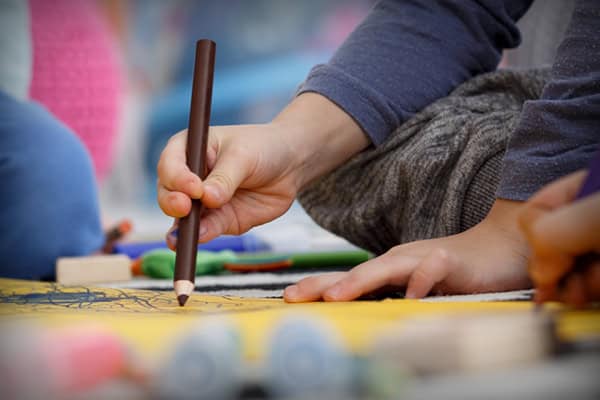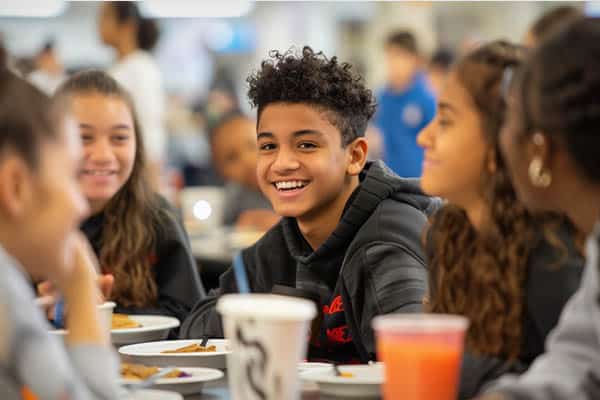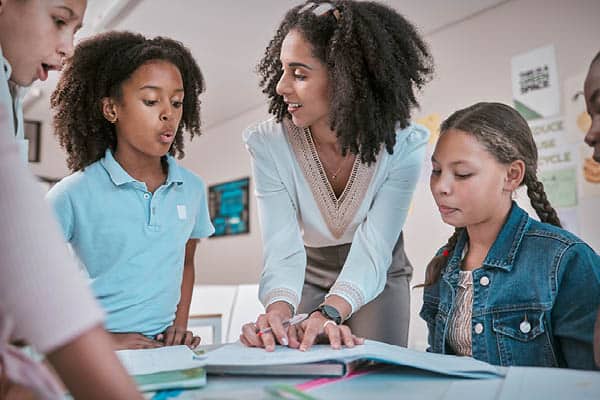Young students are struggling with fine motor skills, like using scissors and pencils, and social-emotional capabilities, such as following instructions and sharing, teachers report, according to Education Week.
Strong majorities of preK-3 teachers said these tasks and skills were more, or much more, challenging for children this school year than they were for kids of the same age five years ago, according to the Education Week State of Teaching survey. Experts say this is likely in part a function of the upheaval caused by the pandemic—and that even students who weren’t in grade school during the height of school closures are still experiencing the lingering effects.
The State of Teaching survey polled a nationally representative sample of 1,500 teachers in the fall, but only teachers who teach grades pre-K-3 answered this question.
Social-emotional skills—listening and following directions and sharing, cooperating with others, and taking turns—topped the list of the tasks that children today are having more trouble with than their peers five years ago.
Most teachers also identified students’ ability to use scissors, crayons, pencils, and pens and tie their shoes as skills that are more challenging now than they used to be.
The results align with some of what the National Institute for Early Education Research at Rutgers University has found in parent surveys on their young children’s learning and development. The organization has surveyed a national sample of parents to children ages 3 to 5 who are not yet in kindergarten six times since spring 2020, with the last survey conducted in December.
While some social and emotional problems have declined slightly since the height of the pandemic, the share of parents who reported that problems with pro-social behaviors—which include skills like learning how to make friends, sharing, and getting along with peers—has increased. Twenty-eight percent of parents indicated those skills were an issue in the most recent survey.
There are several potential reasons why young students’ social and fine motor skills are lagging, says Steven Barnett, the senior co-director of NIEER.
The disruption of the pandemic on schools is one, he says.
Another possible reason is that young children’s screen time has increased in recent years. Research has shown that screen time shortens attention spans and leads to difficulty focusing. Children’s reliance on screens might mean they’re going on fewer play dates or spending less time using crayons or scissors, Barnett adds.
“When you see kids trying to swipe books,” like they’re interacting on a tablet or a cellphone, “you get a sense that maybe some of the traditional tools aren’t as familiar,” he says.
Barnett says he’s less concerned about students’ fine motor skills.
“While it’s a hurdle for kindergarten, kids will learn to do this—it’s just practice,” he says. “Once you get the basics of what you need, then you’re good.”
But delays in social-emotional capabilities—as well as academic skills, like language abilities—can have longer-term impacts, he says. And students who are not listening, following directions, and taking turns can also be disruptive to the classroom environment.
“As a teacher, if I feel that none of the children are listening, I can imagine that that would be a very draining experience on a daily basis in the classroom,” says Sarah Duer, the director of the Hollingworth Preschool at Teachers College.
School leaders need to make sure teachers have the support they need to catch students up on the norms and expectations of the classroom, she says.
“A teacher with a lot of emotional bandwidth to support children with these very foundational, very essential skills is going to need a lot of time to develop that resilience and a lot of support,” Duer says.
This is also work that should be done in connection with students’ caretakers, she adds.
“Families’ needs are always changing. And they’re certainly different than they were five years ago,” she says. “We have to be flexible, responsive, and adaptive to the changing needs.”
Education Week





